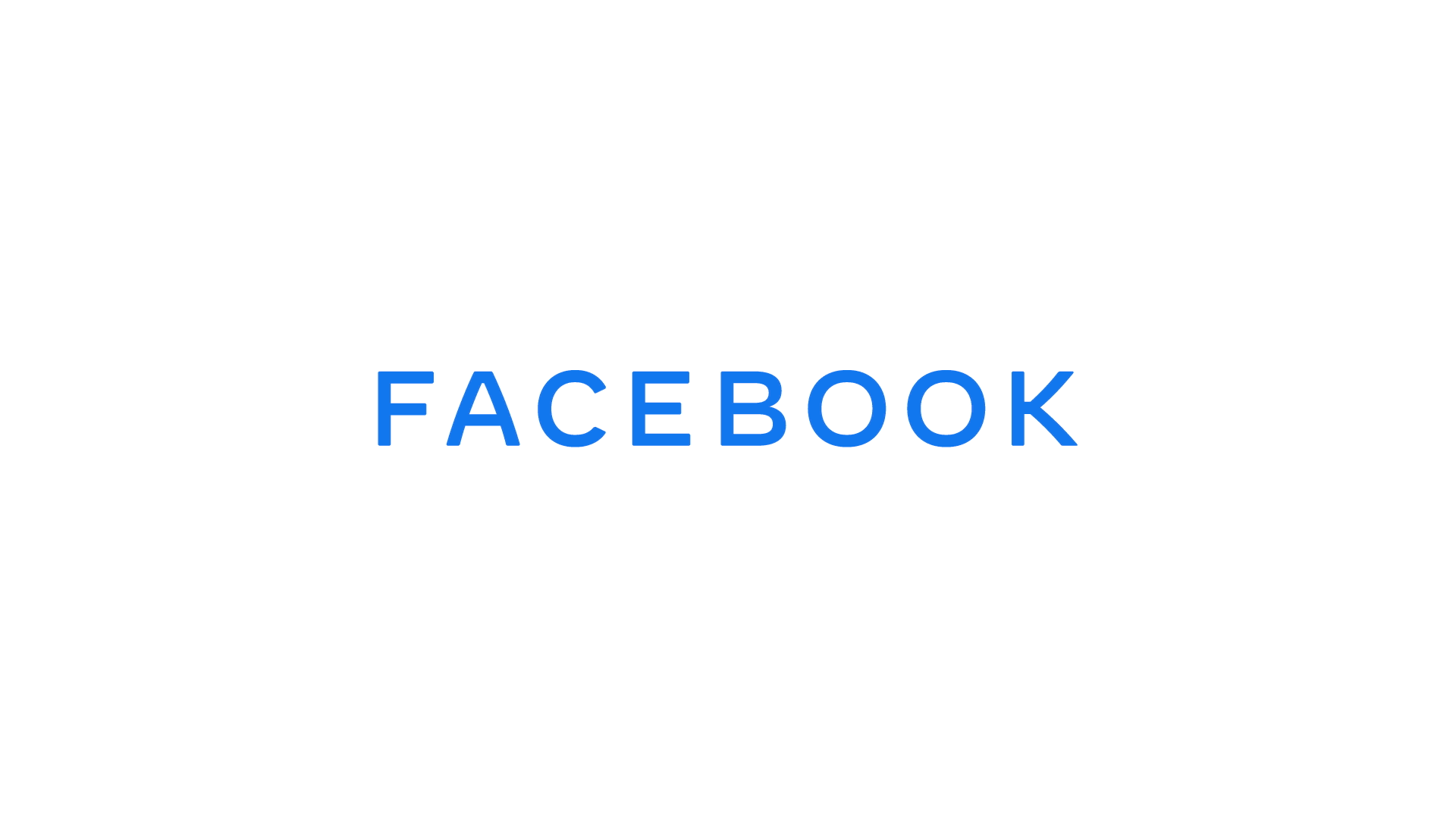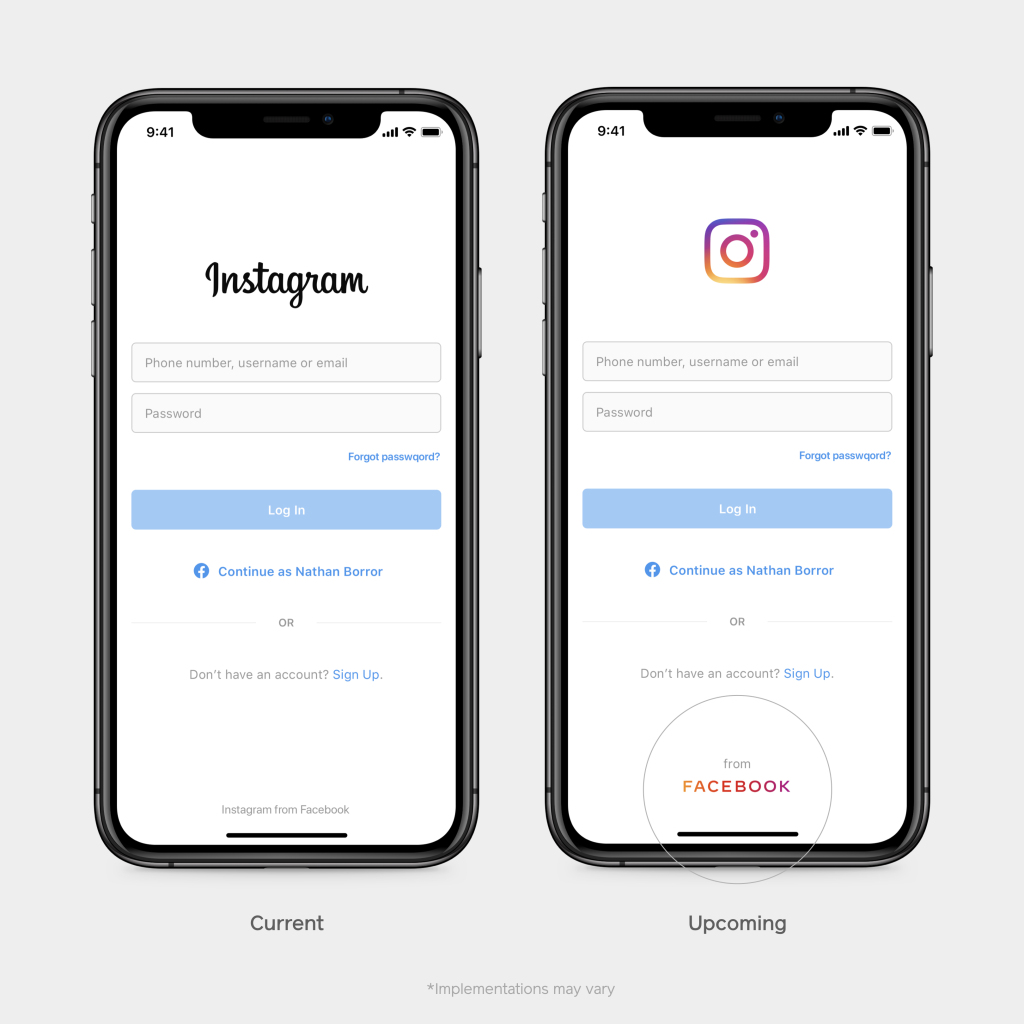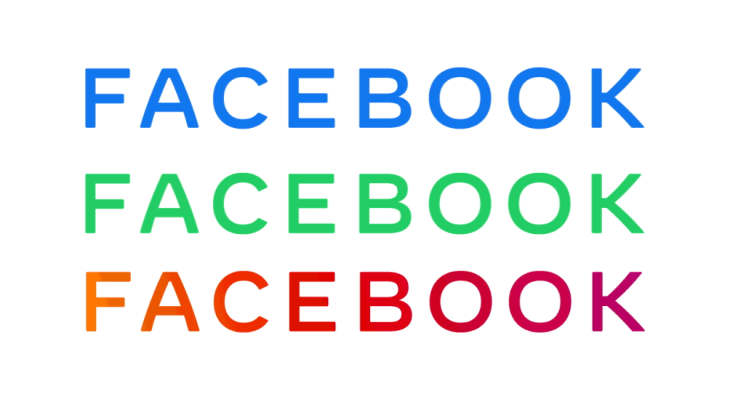Facebook wants more people to know it owns Instagram, WhatsApp and Oculus while still maintaining a distinct identity for its main app. So today Facebook launched a new capitalization and typography format for its company name, using all capital letters and a shifting color scheme that highlights Instagram’s purple gradient and WhatsApp’s green tint.

“Over the coming weeks, we will start using the new brand within our products and marketing materials, including a new company website,” Facebook’s CMO Antonio Lucio writes. For example, the bolder “from FACEBOOK” branding will appear at the bottom of the Instagram login screen and settings menu. Facebook previously used a blue or white lowercase “f” as a logo.
Facebook had considered moving to a different name for the overarching company entirely. Lucio tells me “We had to consider all options but decided that it was important to keep the company name. We always have been and will continue to be Facebook. It was important to retain the company’s name in order to own what we stand for, the decisions we make, our responsibility to people, and how our brands relate to each other.” It’s true that ditching the top-level name could have been seen as an effort to ditch its problematic past.

Facebook began its rebranding process in June, adding “from Facebook” taglines to its products. The Information reported Facebook CEO Mark Zuckerberg was unsatisfied with the credit Facebook was getting for owning Instagram and WhatsApp.
Zuckerberg double-down on that sentiment during this month’s earnings call as a response to questions about anti-trust investigations against the company that could seek to force a spin-off of its acquisitions. Zuckerberg noted that it was Facebook’s resources in areas like anti-spam, internationalization and ads that helped turn Instagram from a sub-50 million user product to a billion-plus one today.
Some see Facebook as preemptively mounting a defense against antitrust action. Beyond rebranding, it’s working on making Facebook Messenger, WhatsApp and Instagram Direct a unified interoperable and encrypted messaging system where users can chat across the apps. Building them all on a centralized infrastructure could make Facebook tougher to break up.
Yet from another perspective, the rebranding efforts feel ham-handed and egotistical. Facebook likely benefits from the fact that most people don’t actually know it owns Instagram and WhatsApp. A recent Pew study found only 29% of Americans correctly named the two as companies owned by Facebook.
Given Facebook’s rash of data security, developer platform, election interference and ongoing privacy scandals, it’s probably better off if people think they can escape the toxicity by using Instagram. The acquisitions effectively acted as a brand lifeboat for Facebook.
Now it seems Facebook is happy to burn down some of the credibility of its younger apps if it builds up the central company. Autonomy at the acquired companies has seemed to wane since Facebook installed loyal lieutenants like Adam Mosseri and Will Cathcart to run Instagram and WhatsApp, respectively.
The big problem for Facebook, beyond government regulation? If current/potential talent view Facebook as choking the potential of its subsidiaries, top workers might be hesitant to join or stay at the family of social networks.
